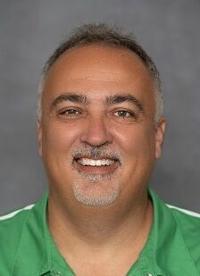
West Virginia Gov. Patrick Morrisey
UPDATE: Less than two hours after this opinion piece was posted and about an hour after Gov. Patrick Morrisey called The West Virginia Record to ensure the information would be provided as soon as possible and that discussion with a staff member of his Office of General Counsel might have been a misunderstanding, the list of names of those who applied to the Judicial Vacancy Advisory Commission was provided to The Record.
CHARLESTON – Gov. Patrick Morrisey repeatedly has promised transparency with his administration.
In May, he touted “a new era of transparency” with child welfare reforms. Last month, the administration promised more transparency regarding transportation projects. A few weeks ago, state Secretary of Health Arvin Singh praised Morrisey’s leadership for “restoring trust, transparency and truth.”

Dickerson
During his State of the State speech in February, Morrisey promised transparency of state permitting processes. In March when West Virginia University’s men’s basketball team didn’t make the NCAA Tournament, he demanded transparency in the selection process.
One of his executive orders signed days after he took office was about reviewing previous executive orders because “the public deserves to know that we are being transparent and what the rules of the road are.”
In the first few weeks of his term, Morrisey said reinstituting six-year budget projections would “help with transparency, accountability and responsible budgeting for the short and long-term.”
He talked about the need for greater transparency many times on the gubernatorial campaign trail.
But …
I bet you can guess what happens next.
Morrisey’s office seems to be a lot of talk and little action when it comes to actually being transparent.
Here’s the latest example.
The state Judicial Vacancy Advisory Commission just finished accepting applications for the state Supreme Court seat left vacant by the retirement of Justice Beth Walker. The deadline to submit an application was July 4.
On July 7, The West Virginia Record reached out to the governor’s office for the list of applicants for the job. I’ve made similar requests since the JVAC was created in 2010.
But this time, I was told the governor’s office doesn’t release the list of applicants until after the interview process “in case someone withdraws their name from consideration.” (Morrisey later told The Record this might have been a misunderstanding.")
First, that’s never been the case before with previous governors. A quick search of our story archives shows numerous stories that list applicants or various judicial openings after the filing deadline has closed and before the interviews are conducted.
Second, why does the governor’s office think it needs to protect someone who might take themselves out of consideration? These people aren’t children. They knew what they were getting into when they applied for the job. And, they sure as hell need a thick skin if they even think about being a Supreme Court justice.
(An aside: The JVAC is the commission to which Morrisey appointed the college-age daughter of his director of policy Curtis Capehart last month.)
I was told I should submit a Freedom of Information request, and the governor’s Office of General Counsel would consider it.
Of course, I figured my request would be ignored because that’s how Morrisey’s office seems to operate. But, I admit I was wrong. I received the list of applicants on July 8 after a discussion with Morrisey about my concerns.
Still, since he took office in January, Morrisey’s administration seems to have adopted the standard policy of ignoring tough questions long enough until they go away. Gov. Jim Justice’s office did that as well, but Morrisey’s crew takes this philosophy to astonishingly new heights.
A few months ago, Morrisey’s office did everything it could to conceal information regarding about 2,000 license plates known as “Governor’s Plates” that typically are given to people with close ties to state government. The low-number plates are considered a status symbol.
Morrisey’s administration wanted to purge some people from that elite list, including people who had criticized Morrisey. When confronted about it, the administration realized the likely public pushback before sheepishly admitting “some errors were made.”
And as I said, this behavior is nothing new. I was given the runaround many times by Morrisey’s office when he was AG.
During his 2020 AG re-election campaign, Morrisey refused to sign the American Tort Reform Association’s transparency oath that requires, if elected, he would release information on outside counsel bidding when the AG’s office hired private law firms.
“Morrisey’s refusal to sign the oath is both surprising and disappointing given the focus he placed on transparency and ethics reforms early in his tenure,” ATRA said in its 2020-21 Judicial Hellholes report.
Morrisey has talked a big game about transparency since he first came to West Virginia and unseated longtime Democratic AG Darrell McGraw. Transparency was a key part of Morrisey’s successful 2012 campaign against McGraw, and he continues to publicly push for more transparency to this day.
But the bottom line is Morrisey’s administration is about as transparent as the brick walls it continually tries to build when asked difficult questions. Worse, the administration seems to be as thick as those brick walls when given the opportunity to actually be transparent. It’s hard to believe, but I actually miss the somewhat more transparent days of the Jim Justice administration.
Meanwhile, I will continue to ask questions. And when the governor’s office answers my latest FOIA request and provides the names of those who want to be your next Supreme Court justice, I’ll pass the info along to you … transparently. (UPDATE: I did that, as promised.)
Dickerson is editor of The West Virginia Record.








